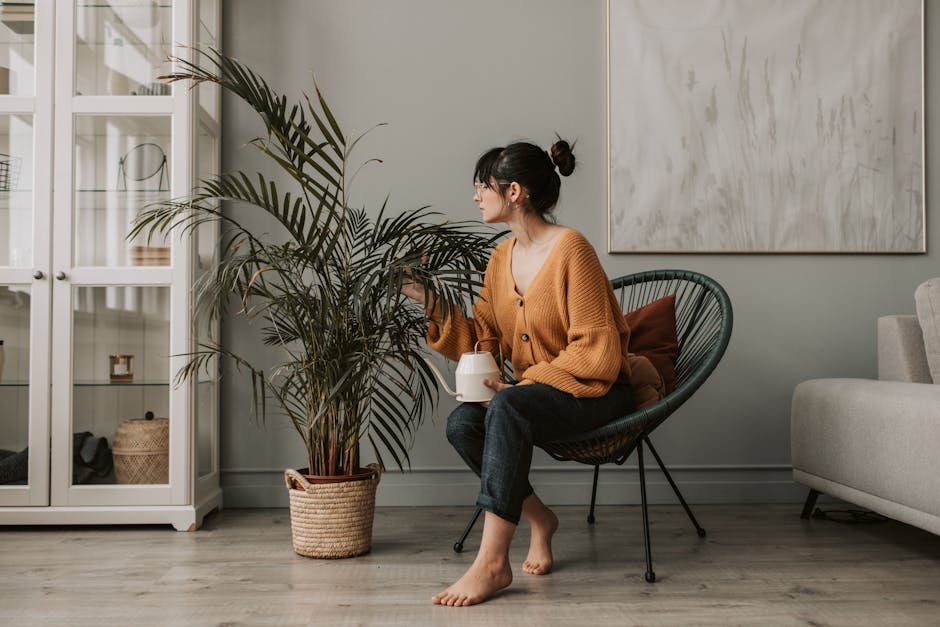Minimalist Living: A Global Movement for Simplicity and Freedom
Minimalist living has gained significant traction as individuals seek to simplify their lives, reduce distractions, and focus on what truly matters. Rooted in the philosophy of intentionality, minimalism promotes the idea that less is often more. It is not just about decluttering physical spaces but also about fostering mental clarity and achieving freedom from unnecessary obligations. This movement transcends cultural and geographical boundaries, resonating with people from diverse walks of life.

Origins and Philosophy of Minimalism
The minimalist lifestyle can be traced back centuries to practices like Zen Buddhism and the teachings of ancient philosophers such as Diogenes of Sinope, who advocated for simple living. These principles emphasized stripping away excess to uncover life's true essence. Over time, minimalism has evolved into a modern movement, addressing contemporary challenges like consumerism, environmental concerns, and mental health.
One central tenet of minimalism is intentional living. This means making conscious choices about what we own, how we spend our time, and even the relationships we nurture. For many, adopting this approach leads to greater fulfillment as they align their actions with personal values rather than societal expectations.
Today’s minimalists are not confined to any specific demographic. From young professionals seeking financial freedom to retirees aiming for a peaceful lifestyle, minimalism appeals universally. Its adaptability makes it a viable option regardless of one's background or circumstances.
The Practical Benefits of Minimalist Living
Minimalism offers tangible benefits that extend beyond aesthetics or reducing clutter. Financial savings are among the most immediate advantages. By prioritizing needs over wants, individuals can cut down on impulsive purchases and redirect resources toward meaningful goals such as travel or education.
Mental health improvements are another significant aspect. Research published by the Journal of Environmental Psychology suggests that cluttered environments can increase stress levels and reduce productivity. Minimalist spaces, by contrast, foster a sense of calm and focus, enabling individuals to function more effectively in their personal and professional lives.
Minimalism aligns closely with sustainability. The reduced consumption associated with this lifestyle results in lower waste generation and decreased environmental impact. According to data from the Environmental Protection Agency (EPA), adopting minimalist habits like buying fewer items and choosing reusable products can significantly contribute to resource conservation.
- Enhanced financial security through mindful spending
- Improved focus and mental clarity in decluttered spaces
- A positive impact on environmental sustainability
- More time for personal growth and relationships
Challenges in Adopting Minimalism
Despite its benefits, transitioning to a minimalist lifestyle comes with challenges. One common hurdle is overcoming societal pressures to accumulate material possessions. Marketing campaigns often fuel the belief that happiness is tied to owning more, making it difficult for individuals to break free from consumerist mindsets.
An emotional attachment to belongings also poses a significant barrier. Many people associate sentimental value with items they own, making decluttering an emotionally taxing process. Experts suggest starting small (perhaps by organizing a single drawer) and gradually expanding efforts as comfort levels increase.
Cultural norms may further complicate the shift to minimalism. In some societies, abundance is equated with success or status, while simplicity might be misunderstood as a lack of ambition. Nonetheless, those committed to the minimalist path find ways to integrate these principles into their lives without sacrificing cultural or social connections.
Practical Steps Toward Minimalist Living
Adopting minimalism doesn’t require an overnight transformation; it’s a gradual process tailored to individual needs and goals. Starting with small steps can make
| Step | Action |
|---|---|
| 1 | Assess your belongings by identifying items you no longer use or need. |
| 2 | Declutter one area at a time (e.g., wardrobe, kitchen). |
| 3 | Create a budget focused on needs rather than wants. |
| 4 | Adopt sustainable habits such as repurposing or recycling items. |
| 5 | Pursue experiences over material possessions (e.g., travel or learning new skills). |
A supportive community can also make the transition smoother. Online forums and local groups dedicated to minimalism provide advice and encouragement for those embarking on this lifestyle change. Additionally, popular books like Marie Kondo's "The Life-Changing Magic of Tidying Up" offer practical insights into simplifying one's life effectively.
A Reflection on Minimalist Living's Broader Impacts
The appeal of minimalist living lies in its ability to resonate on both personal and collective levels. It encourages self-reflection about what truly brings happiness while addressing broader societal issues like environmental degradation and economic inequality. Through simplicity, individuals can achieve not only personal fulfillment but also contribute positively to their communities.
This lifestyle invites us to rethink our relationship with possessions and redefine success in terms that prioritize well-being over wealth accumulation. Whether practiced partially or fully embraced, minimalism offers valuable lessons about finding balance in an increasingly complex world.
The concept may seem straightforward (owning less) but its implications run deep. As you consider integrating elements of minimalism into your life, reflect on how it aligns with your values and aspirations. What could you gain by letting go? Exploring these questions could lead not only to a simpler existence but also a richer understanding of what truly matters in life.
This article was generated by AI